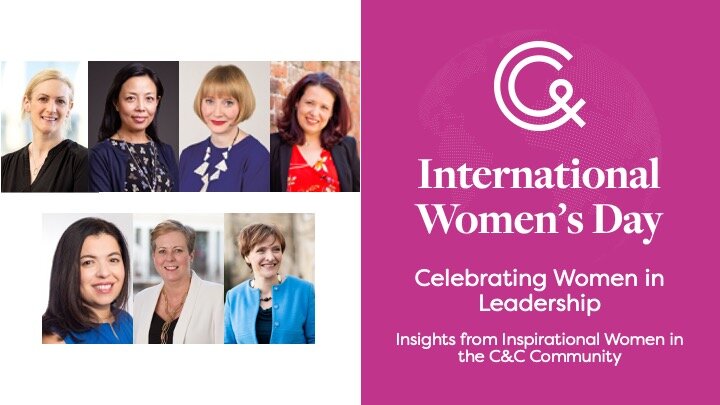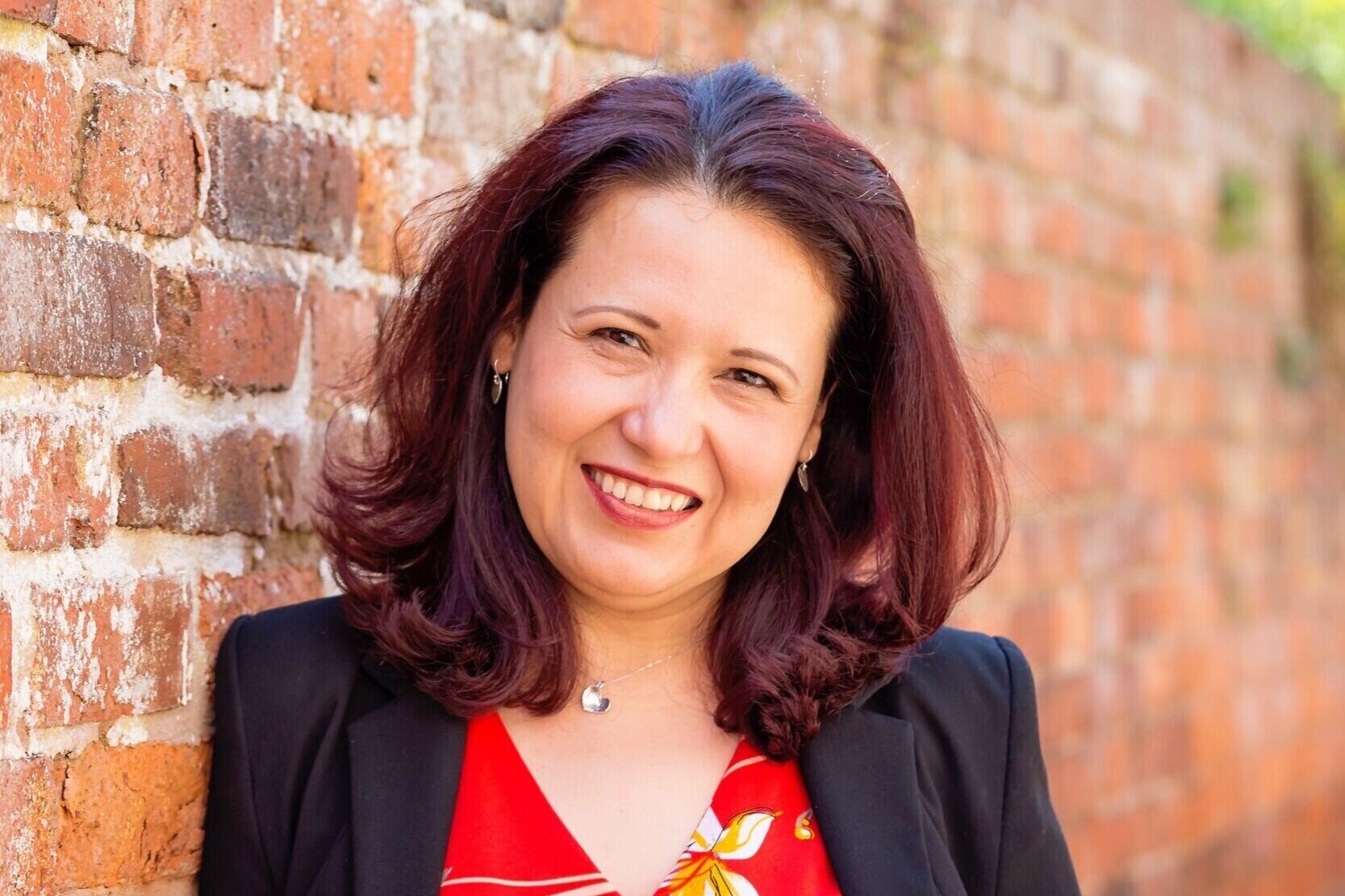International Women’s Day 2021 – Celebrating Women in Leadership
Insights from Inspirational Female Leaders in the Cairney & Company Community.
International Women’s Day is an annual celebration of the social, economic and cultural achievements of women around the world. We are delighted to support the official UN theme for this year with a focus on women in leadership and achieving an equal future in a post-COVID world.
As an organisation founded and led by a woman, Cairney & Company passionately believes in the power of female leadership and talent. Cairney & Company have worked alongside numerous inspirational women across the Education and Non-Profit sectors who are transforming their workplaces and trailblazing a path for the next generation of women in leadership.
We are delighted to share the thoughts of inspirational women we have worked closely with who agreed to share their experiences and thoughts on the future of gender equality within the workplace:
Alex Hutchison – Director, Data for Children Collaborative with Unicef
On How All Leaders can support Gender Equality
I would ask female leaders to be more open and honest in the challenges they face doing their job so that other females can feel empowered to combat those challenges. I would ask male leaders to try walking in their female colleague's shoes. They need to understand the whole picture of what it’s like to be a working woman, and most of that picture is about the burden of home life. By understanding that burden, they are then able to truly support their staff to shoulder it.On Balancing Motherhood and Work
The return to work from three maternity leaves has seen me try every shade of part-time work possible. I’ve done three days a week, four days a week, five days compressed into four and full-time work as a mother. What I established at the end of all that trial and error, is that each individual needs to do what's best for them. I know that for me, personally, I need to work full-time to give a job the attention that I think it requires. This is absolutely of my own making and not something I would expect of anyone elseOn the Challenges of Representation
There’s too much box ticking as a nod towards gender equality which puts additional pressure on successful women as they then feel the need to ‘represent’ at every conference, panel etc.
On Gender and Race Equality in the Workplace
To me, gender equality in the workplace means genuine understanding and practical support from male leadership. Reflecting on my years of experience working in a Scottish secondary school as a teacher with Chinese origin, I became one of the very few employees from an ethnic minority background, which sometimes created additional challenges in terms of understanding and embracing the cultural differences. Luckily, I didn’t have any issue with gender equality at the workplace and I was proud to be a female teacher.
Shuming Kong, Cairney Partner
Rachel Sandison – Vice-Principal, External Relations, University of Glasgow
On Gender Equality in the Workplace
Gender equality, stated plainly, is equal opportunity. Within the workplace this means, amongst other things, the removal of the gender pay gap, dismantling barriers to female advancement, equal consideration of needs, eradicating harassment and redefining flexible working practices to create an ecosystem that provides everyone with the same opportunity to flourish within a culture that values and rewards individual differences. Gender equality is not a zero-sum game. Everyone benefits when organisations are diverse, inclusive and supportive of talent development.On how Leaders can support Gender Equality
Leaders need to ensure that they are creating the conditions for success - from reviewing recruitment and selection practices to actively challenging discrimination and making certain that equity is a core part of diversity and inclusion initiatives at every level. Importantly, leaders have to actively listen, and use their voice and influence to make gender equality a reality.On Female Mentorship
I have always said that ‘you can’t be what you don’t see’, which is why I believe mentorship is so critical. I have directly benefited from support from female leaders within the sector, and felt first-hand the edifying impact of female empowerment; something I am now committed to encouraging in others.
On Female Mentors & Male Allies
I have had the privilege of working with some wonderful female mentors in my career and I am often reminded of the advice of a very wise woman who said to me “never be afraid to sparkle a little brighter”. Women should not hide their light or be wary or fearful of shining the brightest they can. I have also been extremely fortunate to have had strong support from male allies and two in particular, Sir Duncan Rice and Professor Michael Arthur where we have challenged inequities together and made change happen. I have always been drawn to this African Proverb and would use it in graduation addresses. “If you want to go fast go alone, if you want to go far go together!”
Lori Houlihan - Former Vice Provost (Advancement), UCL
Mahsa Taheri – Cairney Partner
On Life as a Working Mother
I joined Cairney & Co in 2017 to have the professional freedom to determine my own work hours and structure. I wanted it all: to work with mission driven organisations, work internationally and also have enough time to raise my children. Cairney & Co allowed me to do that. I can dedicate the time I want to my family and simultaneously enjoy working with international clients to advance causes I believe in.On the Challenges of Modern Motherhood
One of the hardest things for me as a mother was to intentionally bring awareness of the historical and current discrepancies in gender equality to my children. In their worlds, they made no distinction in sex or race when they were younger. Now they know the world works differently. In my opinion, being blind to gender or race inequality is a privilege that many can’t afford.On Gender Equality in the Workplace
For me, gender equality in the workplace is not about having the exact same number of men and women in the office or on the Board. It's about valuing the people you have around the table equally and treating everyone fairly. If two people have the exact same skills, academic background and job expectations, they should be valued the same with the same salary level and be given the same degree of responsibility and input
On Gender Equality - For me, gender equality will be achieved when no-one writes an article about me being the first women Principal of Gordonstoun. It shouldn’t be exceptional to have women in leadership positions. I did giggle when someone once called me the Lady Headmaster!
On Achieving Balance
Evidence shows that diverse teams are high performing teams. At Gordonstoun our leadership team has gone from being 10% female to 60% female and we’ve made sure the skills in the room are diverse too. But I also think it’s so important that we encourage boys to look up to women and see them as role models too. Having men in pastoral roles is vital because, if we’re to have more balance in the future, children need to see men undertaking caring responsibilities.
Lisa Kerr – Principal, Gordonstoun
Professor Elena Rodriguez-Falcon – President & CEO, NMITE
On Structural and Internal Barriers
There are two types of inequalities and barriers which need to be removed. The first is structural, existing within the education systems at A-Level and degree stage, and again during practice. We also deal with self-imposed challenges and limitations, particularly around our own abilities. Too often, when we look at the next promotion that comes up, we think we’re not quite ready or maybe we’re not the right person for the job. It is very difficult to break this barrier as it is ingrained in our history. It is how we have been brought up and is reinforced by those structural barriers in education. We must never lose sight of these barriers and continue to find ways to remove them.On Modern Female Leadership Styles
In 2021, there are two types of successful female leaders in male dominated industries. One is the type who has had to fit in with their male counterparts to be able to progress, often sacrificing their own personal lives. But then there is the other type which is emerging more and more. The self-aware, empathetic, consultative inclusive leader. What both have in common is that ability to spot opportunities, the willingness to take risks and the wisdom to learn from experiences and mistakes. That’s my challenge to women and that’s my challenge to society. Empower those women, empower them to be able to be themselves they don’t need to emulate a man to be successful and if women take risks, learn from them, don’t be afraid.








